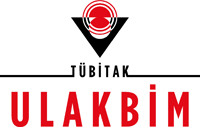THE IMPACT OF FOREİGN DİRECT INVESTMENT INFLOWS ON EXPORT AND ECONOMİC GROWTH: A RESEARCH ON TÜRKİYE
Keywords:
Foreign Direct Investment, Economic Growth, Export, Foreign Direct Investment Inflows, ARDL Bound TestAbstract
Abstract
Foreign direct investment is essential in increasing the level of welfare of developing countries and in increasing business connections of these countries with various foreign nations. It contributes to capital accumulation, employment and output increase in the host country through benefits like know-how, managerial skills, advanced and organizational technologies, and thus can increase the export and national income of that country. In this context, in this work, the influence of foreign direct investment inflows on economic growth and export in Türkiye are investigated via the ARDL model. Pursuant to the results of the study, foreign direct investment variable has a high correlation with the variables of gross domestic product and export. In accordance with the Augmented Dickey-Fuller (ADF), Phillips-Perron (PP) and structural break unit root tests applied to examine the unit root processes of the logFDI, logGDP and logEXP variables, it was decided that all the variables were first-order integrated series that were non-stationary at level and stationary at the first cyclical difference. In the models created after the optimal lag selections for the ARDL model in line with the Akaike Information Criterion, it was determined that foreign direct investment has a long-term equilibrium relation with gross domestic product and export. Findings from the ARDL bound test analysis carried out in the research show that aforementioned investments have a statistically positive and significant impact on gross domestic product and export in the long-term. Short-term coefficients also reveal that the short-term effect of these investments on the countryˈs export is statistically significant and positive.









